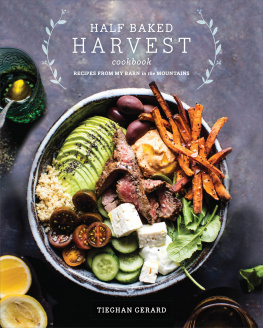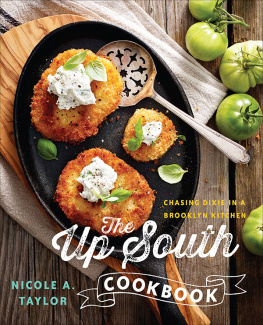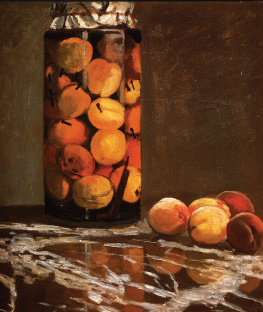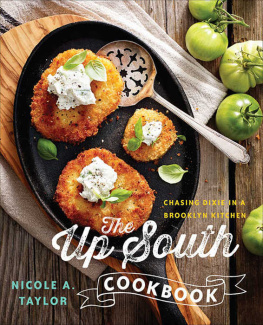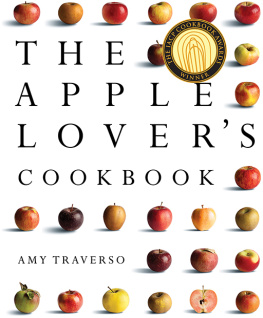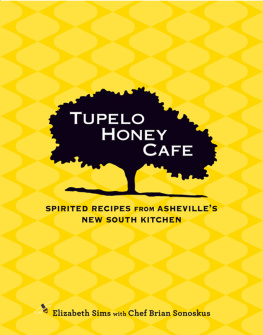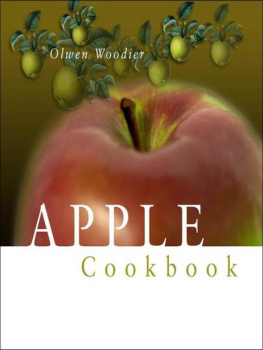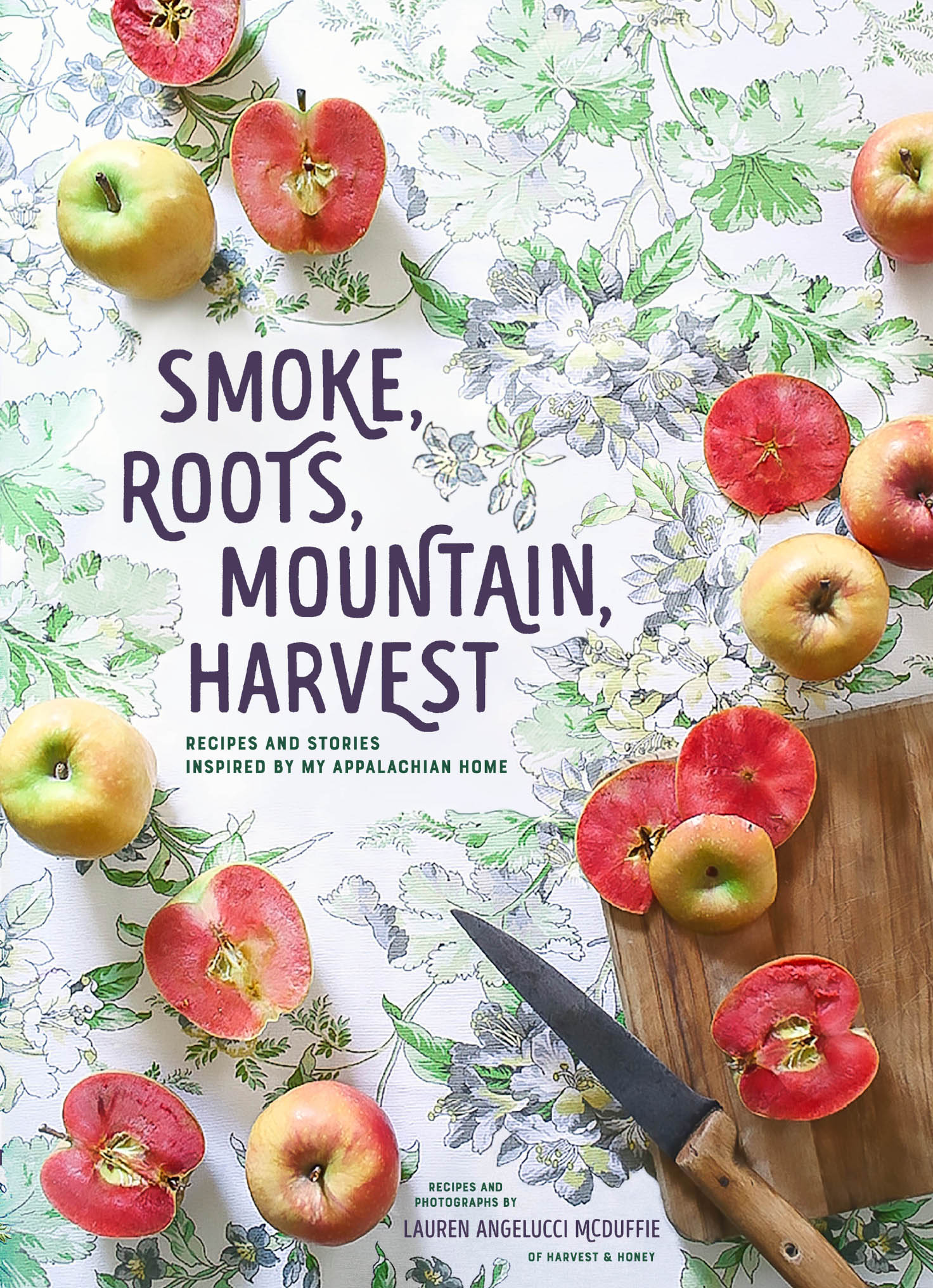





For You, Mom.
You were right All Along.
Text and photographs copyright 2019 by LAUREN MCDUFFIE.
All rights reserved.
No part of this book may be reproduced in any form without written permission from the publisher.
ISBN 9781452168777 (epub, mobi)
Library of Congress Cataloging-in-Publication Data
Names: McDuffie, Lauren, author.
Title: Smoke, roots, mountain, harvest / by Lauren McDuffie.
Description: San Francisco : Chronicle Books, [2019] | Includes index.
Identifiers: LCCN 2018017147 | ISBN 9781452168760 (hardcover : alk. paper)
Subjects: LCSH: Cooking, AmericanSouthern style. | CookingAppalachian
Region, Southern. | LCGFT: Cookbooks.
Classification: LCC TX715.2.S68 M333 2019 | DDC 641.5975dc23 LC
record available at https://lccn.loc.gov/2018017147
Prop styling by LAUREN MCDUFFIE
Food styling by LAUREN MCDUFFIE
Design by LIZZIE VAUGHAN
Title Typography by RACHAEL CLARK, set in Intro Head
Typeset in Garamond, Bourton, and Berthold Akzidenz-Grotesk
On the cover: Waverly Fawn Hill Platinum fabric; Iconix Brand Group, Inc.
7Up is a registered trademark of Dr. Pepper/Seven Up, Inc. Boursin is a registered trademark of Socit de la Fromagerie Boursin. Bragg is a registered trademark of Bragg Live Food Products. Cholula is a registered trademark of Salsas de Jalisco Cacu, S.A de C.V. Coca-Cola is a registered trademark of The Coca-Cola Company. Crisco is a registered trademark of The J.M. Smucker Company. Ghirardelli is a registered trademark of Chocoladefabriken Lindt & Sprngli AG. Honda is a registered trademark of Honda Motor Co., Ltd. Keds is a registered trademark of SR Holdings, LLC. MacBook Air is a registered trademark of Apple Inc. Microplane is a registered trademark of Grace Manufacturing Inc. Nutella is a registered trademark of Ferrero S.p.A. Corporation. Scrappys Bitters is a registered trademark of Scrappy Bitters, LLC. Tabasco is a registered trademark of McIlhenny Company. Traditional Medicinals is a registered trademark of Traditional Medicinals, Inc. Tupperware is a registered trademark of Dart Industries Inc.
Chronicle books and gifts are available at special quantity discounts to corporations, professional associations, literacy programs, and other organizations. For details and discount information, please contact our premiums department at or at 1-800-759-0190.
Chronicle Books LLC
680 Second Street
San Francisco, California 94107
www.chroniclebooks.com
Contents



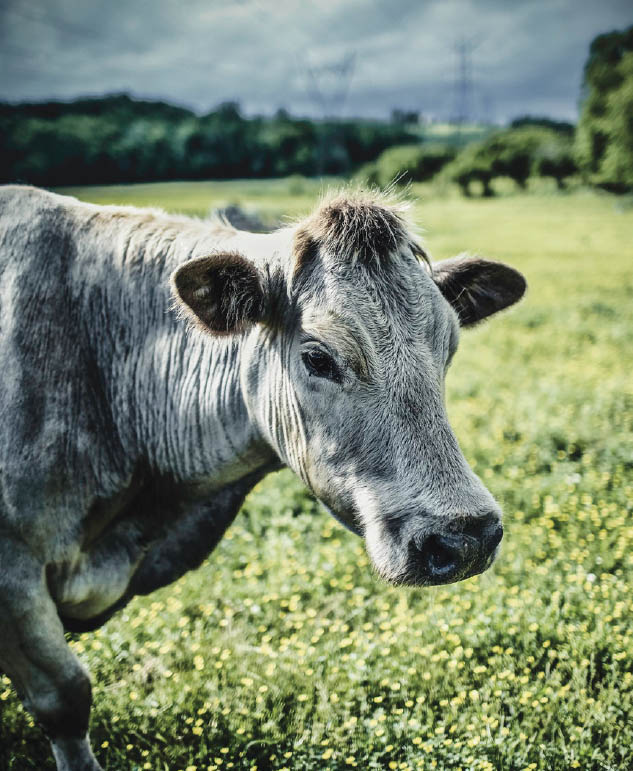
INTRODUCTION
About two hours into the drive, right after youve made your way through Charleston, West Virginia, the earth perks up a bit and the mountains come into view. In the wintertime, when the leaves have completely given up, abandoning their posts on the forest branches and falling to the rugged floor below, the mountains look naked. Elephant backs, I used to call them, thinking that they looked like an endless herd of giant gray elephants marching off into the distance. The Blue Ridge. Keepers of so many of my favorite things, country roads take me home, to the place I belong. With the windows rolled down, a half-eaten bag of salted peanuts in my lap, and Emmylou Harris singing wistfully from the radio speakers, I steer my car up and down and across the winding mountain roads that lead toward home.
I used to feel sorry for anyone who didnt get to grow up where I did. I spent my childhood in the Virginia mountains of central Appalachia, where dark, brooding hills and thickly forested valleys literally framed my adolescence and made me feel protected from the big, bad world beyond. Growing up, I believed that I lived in the most magical place. The salt-of-the-earth people and a scattering of small towns, back roads, and sandy-banked rivers created the backdrop of my youth. To this day, the sight of those rambling mountains gives me a powerful sense of homeeven though I no longer reside within their boundaries.
Appalachia is a wildly unique place with heirloom ingredients and culinary traditions that have been protected by its mountainous isolation and are still largely unknown outside the region. Appalachian food history is grounded in subsistence. A scrappy and smart way of approaching food, central Appalachian cooking highlights a wealth of indigenous ingredients and cooking methods that were born from necessity and the will to survive.
Thanks to techniques such as canning, fermenting, pickling, and preserving, this cucina poveraan Italian phrase that means, literally, food of the poorhelped sustain the mountain population when resources were scarce, while also generating many beloved heritage recipes that are truly greater than the sums of their parts. Black walnuts, sorghum, sassafras, wild apples, ginseng, ramps, wildflower honey, and a seemingly endless variety of wild mushrooms demonstrate that the lush and bountiful mountains of central Appalachia are a treasure trove of fresh produce and time-honored recipes.
Years ago, I sat down to dinner at the Palisades Restaurant, a charming eatery in Eggleston, Virginia. Situated on a side street in a tiny, one-stoplight mountain town, this general storeturned dining establishment was the kind of place you have to go a bit out of your way to find. Ill never forget the conversation I had with our waitress. In her sharp-yet-endearing twang that is so specific to that corner of the state, she rattled off the specials at a clip that made it hard to keep up.
Wait, can you repeat that last one? I asked, feeling certain that she hadnt just said trout with pickled peaches.
Yep! You heard right, Darlin, she said. They pickled the leftover peaches from this weeks cobbler and were servin them up alongside the rainbow trout. Its wonderful, just you wait and see. Waste not, want not, right?
She winked at me, and I thought of my grandmotherand my mother, for that matter. And if she wasnt spot on about that trout! It was some of the best fish Id ever had, the bold flavors still memorable many years later. Just think: it was a recipe designed to repurpose a few peaches.
These days my kitchen is far from the Blue Ridge Mountains of Southwestern Virginia, where I was raised. But my day-to-day approach to cooking is largely influenced by the formative time I spent in that small corner of the world. The pull of our roots can be such a strong force, no matter how far or wide we may roam. I feel this truth every day. I feel it in my love of and deep appreciation for farmers markets and roadside produce stands. It justifies my insistence on keeping a well-seasoned cast-iron pan forever at the ready, the small box of time-worn family recipes that will live in every kitchen of mine, and the (unnecessarily large) collection of mason jars Ive amassed. It fuels my regular effort to waste not, want not and use everything in our pantry, down to the last doggone bean.
Next page


![Ori Menashe - Bestia: Italian Recipes Created in the Heart of L.A. [A Cookbook]](/uploads/posts/book/277251/thumbs/ori-menashe-bestia-italian-recipes-created-in.jpg)
